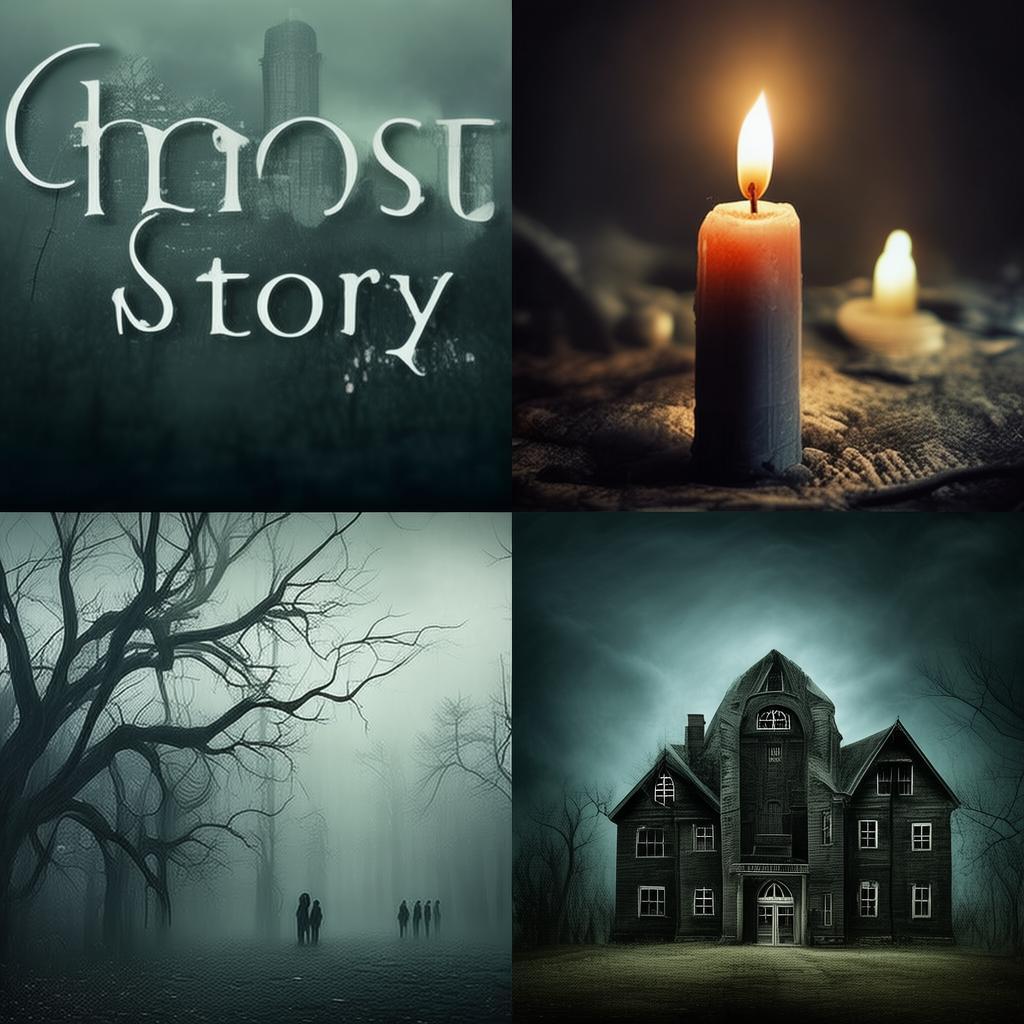The Haunting Whispers of the Four Hundred Ghosts
In the serene yet eerie village of Jingzhu, nestled between the rolling hills and whispering bamboo groves, there lay an old, abandoned library known as the Hall of Whispers. The library was said to be the repository of ancient wisdom and forgotten tales, but it was also whispered that it harbored the spirits of the Four Hundred Ghosts—a spectral choir that sang their haunting ballad every twilight.
Liu Jing, a young and ambitious scholar, had always been fascinated by the supernatural. His thirst for knowledge led him to Jingzhu, where he hoped to uncover the secrets of the Four Hundred Ghosts' Ballad. Liu had heard tales of the ballad, a tale of betrayal and love that had taken place centuries ago, a tale that had since become a legend.
The village was a maze of narrow alleys and wooden houses, each with its own story. The villagers spoke of the library with a mix of reverence and fear, as if the very walls held the weight of the ghosts' sorrow. Liu's determination to uncover the truth was unyielding, and he began his research by interviewing the oldest residents of Jingzhu.
The villagers spoke of a time when the library was the heart of the village, a place of learning and culture. But that was before the Great Sorrow, when the Four Hundred Ghosts had descended upon the village, their haunting ballad a requiem for the lives they had lost. According to legend, the ghosts were bound to the library until their tale was told, their suffering avenged.
Liu's investigation led him to the library, a decrepit building on the edge of town. The air was thick with the scent of old paper and the echoes of forgotten laughter. As he stepped inside, the heavy door creaked shut behind him, and he felt a chill that ran down his spine.
The library was a labyrinth of shelves, filled with ancient scrolls and dusty tomes. Liu spent days poring over the texts, but it was the ballad itself that captivated him. The verses were haunting, filled with a sense of loss and unrequited love. He discovered that the ballad was written by a young scholar named Cheng, who had fallen in love with a woman named Liang. Their love was forbidden, and when Cheng's family discovered their affair, they had him executed. Liang, in her grief, had vowed to join him in death, and so the Four Hundred Ghosts were born.
As Liu delved deeper into the story, he began to experience strange occurrences. At night, he would hear whispers, faint but clear, echoing through the library. He would see shadows move across the pages, as if the ghosts were trying to communicate with him. The villagers had warned him of the dangers, but Liu was determined to uncover the truth.
One evening, as the twilight began to descend, Liu felt a presence in the library. He turned to see an ethereal figure standing before him, her eyes filled with sorrow. It was Liang, the woman whose love had driven the Four Hundred Ghosts into existence. "You have come to free us," she whispered.

Liu was frightened, but he felt a strange connection to Liang. He realized that he had to tell her story, to bring her and Cheng together once more. He began to write, his quill moving swiftly across the parchment, capturing every detail of their love and the tragedy that had befallen them.
As Liu's tale came to life, the whispers grew louder, the shadows more vivid. The Four Hundred Ghosts seemed to be drawn to his words, their spirits yearning for release. Liu felt the weight of their suffering, the pain of their unfulfilled love.
One night, as Liu sat at his desk, the whispers grew to a crescendo, and the library was filled with a blinding light. When the light faded, Liang was no longer there, but Liu could feel her presence, a sense of peace and fulfillment. The Four Hundred Ghosts had been freed, their tale told, and their suffering avenged.
Liu left the library, the weight of the world lifted from his shoulders. He knew that his life would never be the same, but he felt a profound sense of accomplishment. The Four Hundred Ghosts' Ballad had been his guide, his teacher, and his companion through the darkest of times.
The village of Jingzhu slowly returned to its peaceful existence, the library once again a place of learning and culture. Liu's story was shared far and wide, a testament to the power of love and the enduring spirit of the human heart. And in the quiet of the night, when the moonlight filtered through the bamboo groves, one could sometimes hear the faint whispers of the Four Hundred Ghosts, singing their ballad, a reminder of the love that had transcended time and death.
✨ Original Statement ✨
All articles published on this website (including but not limited to text, images, videos, and other content) are original or authorized for reposting and are protected by relevant laws. Without the explicit written permission of this website, no individual or organization may copy, modify, repost, or use the content for commercial purposes.
If you need to quote or cooperate, please contact this site for authorization. We reserve the right to pursue legal responsibility for any unauthorized use.
Hereby declared.









